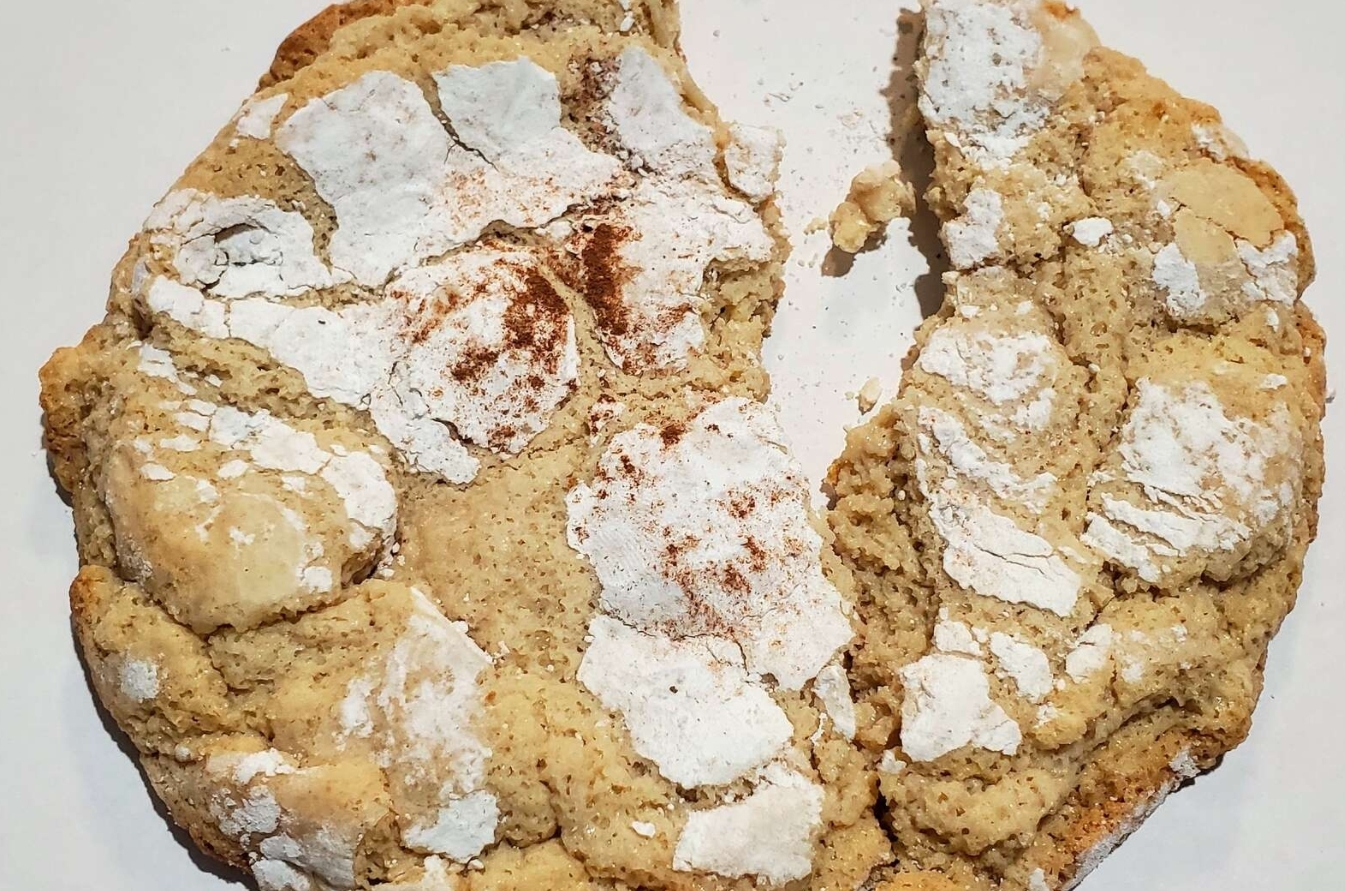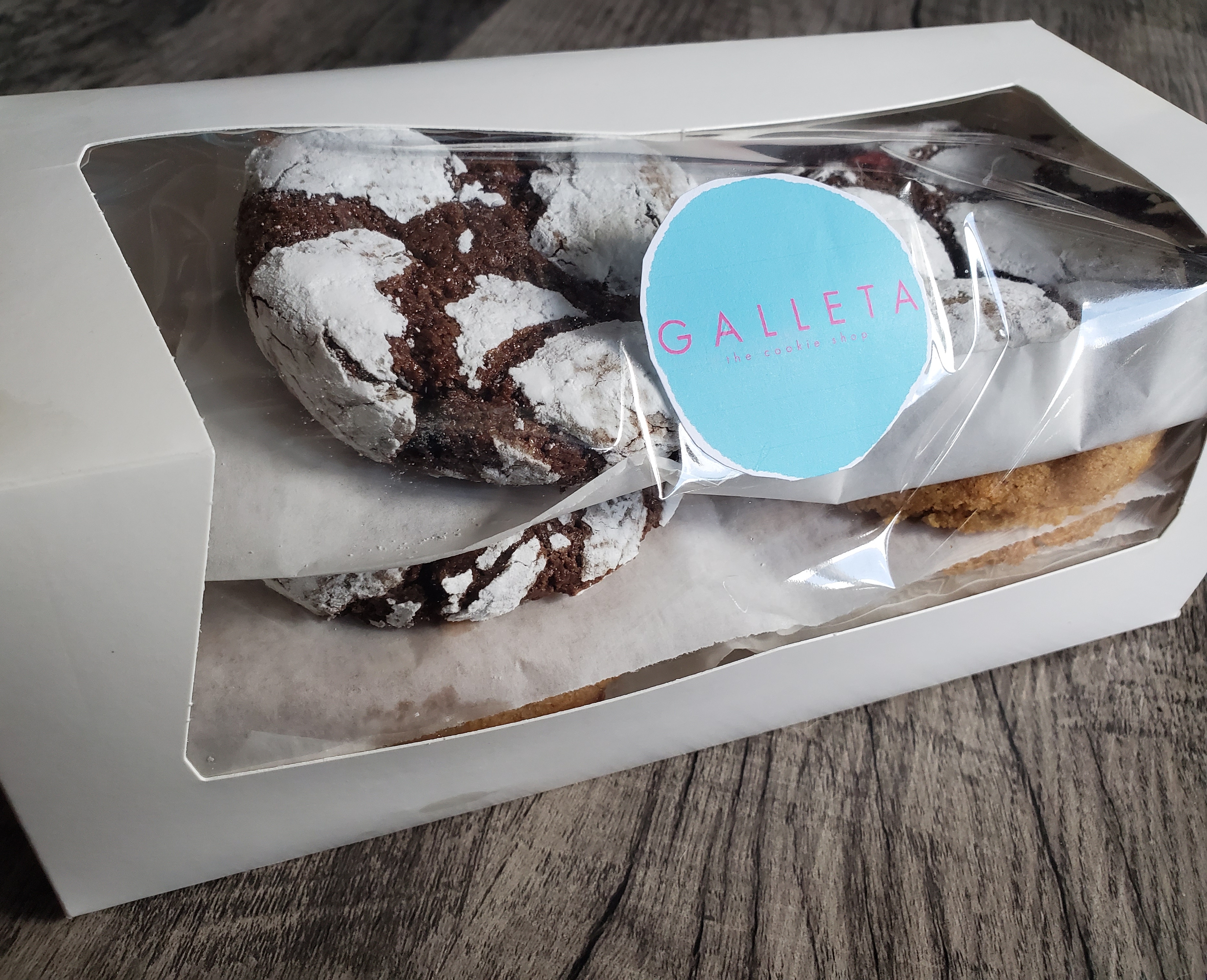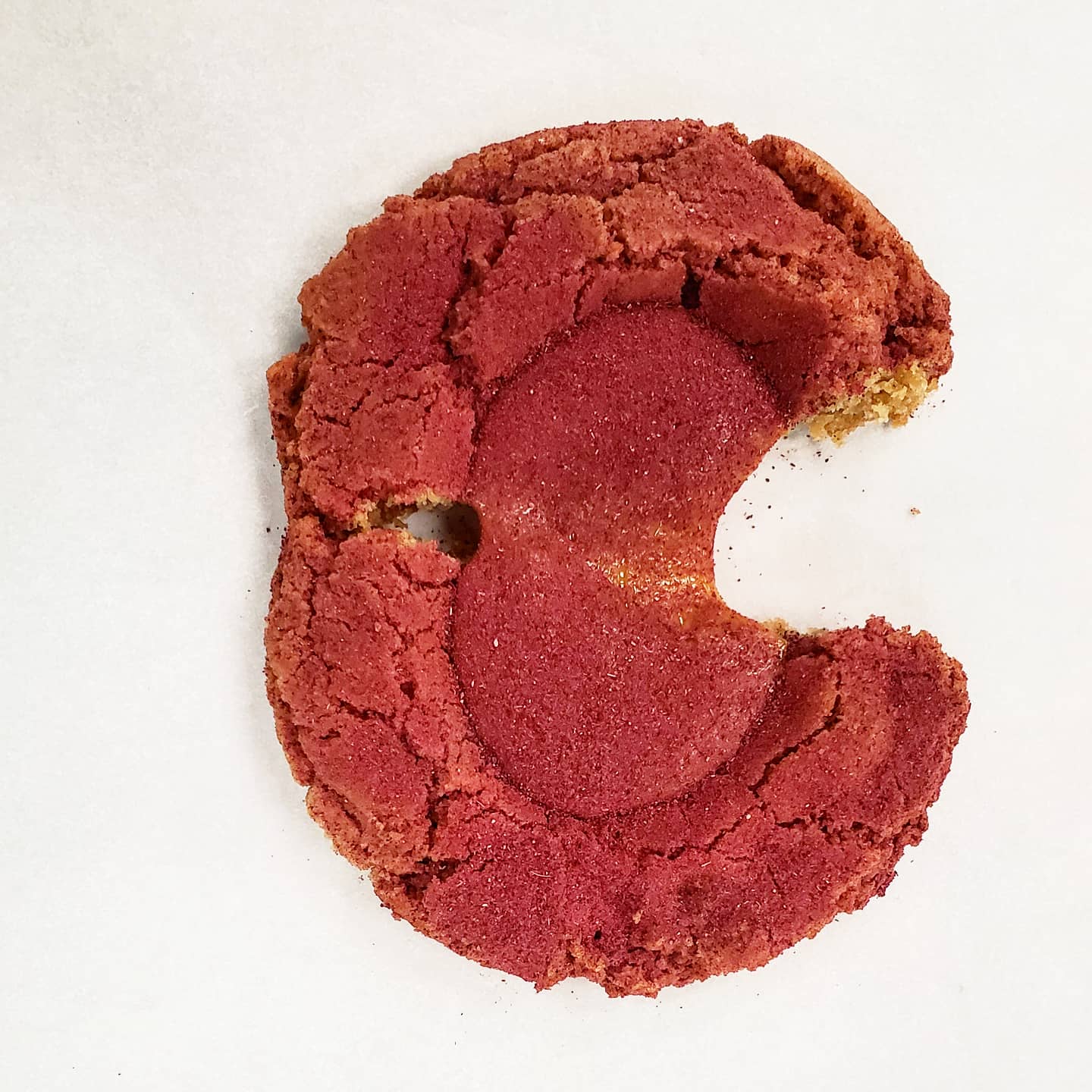Welcome to DU!
The truly grassroots left-of-center political community where regular people, not algorithms, drive the discussions and set the standards.
Join the community:
Create a free account
Support DU (and get rid of ads!):
Become a Star Member
Latest Breaking News
General Discussion
The DU Lounge
All Forums
Issue Forums
Culture Forums
Alliance Forums
Region Forums
Support Forums
Help & Search
Celerity
Celerity's Journal
Celerity's Journal
February 4, 2021
https://www.thedailybeast.com/coronavirus-mutations-spell-catastrophe-for-black-america

The new variants from the United Kingdom, South Africa, and Brazil have arrived, and COVID-19 is about to get much worse in America. It may hit our Black communities the hardest—unless we devise a new plan to prevent a potentially catastrophic surge in deaths and protracted illnesses. Last year, we quickly learned how Black populations suffered disproportionately compared to most other groups in the United States. Approximately 56,000 Black people have been recorded as losing their lives due to COVID-19, and the figure is likely an undercount. This number represents 16 percent of all documented COVID-19 deaths nationwide, exceeding the percentage of Black Americans in the U.S. population. One in every 792 Black Americans has died in connection with the coronavirus, about three times the rate among white people. Black people are also far more likely to contract COVID-19 or require hospitalization.
Equally disturbing, Black Americans, at least early on in the pandemic, appeared to be dying from COVID-19 at a younger age compared to the rest of the U.S. population. Whereas 13 percent of white deaths examined by the CDC were under the age of 65, 30 percent of non-white deaths fell in that age range. The reasons for the high rates of serious illness and deaths at younger ages require more in-depth investigation. They likely include higher exposure rates due to the essential nature of work in low-income neighbourhoods connected to construction sites or small businesses, and, possibly virus infections among homeless and incarcerated populations. There are also substantial rates of diabetes, hypertension, renal disease, and obesity among Black populations. The bottom line is that we are losing thousands of Black moms, dads, brothers, and sisters in their forties, fifties, and early sixties to COVID-19. We are moving to a new reality in which, soon, most Black people may know someone personally who has lost their life to COVID-19.
Our best hope to prevent further devastation is through vaccination. But there, again, we are failing Black families. Although vaccination data are still not widely available in many states, it already appears that Black Americans have fallen behind white ones. A new Kaiser Health News analysis in 16 states finds that white residents significantly outpace Black residents, often by a factor of two or three times, in terms of immunization rates. For example, in Mississippi—a state with a 38 percent Black population—only 18 percent of those who had been vaccinated were Black. A major concern is lack of vaccine access. Under President Trump, our national vaccination program for COVID-19 relied significantly on hospital and pharmacy chains, even though many poor neighbourhoods no longer sustain community hospitals or became “pharmacy deserts.” Hospital closures in segregated communities are well documented, and a 2014 study in the prestigious Health Affairs policy journal highlighted the desertification of pharmacies in segregated Chicago communities.
Compounding inadequate health care and pharmacy access are high rates of vaccine refusal or hesitancy. A recent study I took part in, published in Social Science & Medicine and led by Dr. Tim Callaghan at Texas A&M University, found that 31 percent of Americans did not plan on getting vaccinated against COVID-19—with Black people 40 percent more likely not to attempt immunization. Among the major reasons cited were fears about COVID-19 vaccine safety and efficacy, as well costs and lack of health insurance. An earlier Kaiser study had similar findings. A perfect storm is brewing in Black communities across America. The increased COVID-19 exposure in low-income neighbourhoods, high rates of co-morbidities and deaths in younger age groups, lack of vaccine access, and vaccine refusal, all work to ensure that adult Black people will sustain devastating losses. And now we face the impact of emerging variants.
snip
COVID Mutations Spell Catastrophe for Black America
A toxic mix of racist health outcomes, unequal vaccine distribution, and hesitancy to take the shots mean trouble.https://www.thedailybeast.com/coronavirus-mutations-spell-catastrophe-for-black-america

The new variants from the United Kingdom, South Africa, and Brazil have arrived, and COVID-19 is about to get much worse in America. It may hit our Black communities the hardest—unless we devise a new plan to prevent a potentially catastrophic surge in deaths and protracted illnesses. Last year, we quickly learned how Black populations suffered disproportionately compared to most other groups in the United States. Approximately 56,000 Black people have been recorded as losing their lives due to COVID-19, and the figure is likely an undercount. This number represents 16 percent of all documented COVID-19 deaths nationwide, exceeding the percentage of Black Americans in the U.S. population. One in every 792 Black Americans has died in connection with the coronavirus, about three times the rate among white people. Black people are also far more likely to contract COVID-19 or require hospitalization.
Equally disturbing, Black Americans, at least early on in the pandemic, appeared to be dying from COVID-19 at a younger age compared to the rest of the U.S. population. Whereas 13 percent of white deaths examined by the CDC were under the age of 65, 30 percent of non-white deaths fell in that age range. The reasons for the high rates of serious illness and deaths at younger ages require more in-depth investigation. They likely include higher exposure rates due to the essential nature of work in low-income neighbourhoods connected to construction sites or small businesses, and, possibly virus infections among homeless and incarcerated populations. There are also substantial rates of diabetes, hypertension, renal disease, and obesity among Black populations. The bottom line is that we are losing thousands of Black moms, dads, brothers, and sisters in their forties, fifties, and early sixties to COVID-19. We are moving to a new reality in which, soon, most Black people may know someone personally who has lost their life to COVID-19.
Our best hope to prevent further devastation is through vaccination. But there, again, we are failing Black families. Although vaccination data are still not widely available in many states, it already appears that Black Americans have fallen behind white ones. A new Kaiser Health News analysis in 16 states finds that white residents significantly outpace Black residents, often by a factor of two or three times, in terms of immunization rates. For example, in Mississippi—a state with a 38 percent Black population—only 18 percent of those who had been vaccinated were Black. A major concern is lack of vaccine access. Under President Trump, our national vaccination program for COVID-19 relied significantly on hospital and pharmacy chains, even though many poor neighbourhoods no longer sustain community hospitals or became “pharmacy deserts.” Hospital closures in segregated communities are well documented, and a 2014 study in the prestigious Health Affairs policy journal highlighted the desertification of pharmacies in segregated Chicago communities.
Compounding inadequate health care and pharmacy access are high rates of vaccine refusal or hesitancy. A recent study I took part in, published in Social Science & Medicine and led by Dr. Tim Callaghan at Texas A&M University, found that 31 percent of Americans did not plan on getting vaccinated against COVID-19—with Black people 40 percent more likely not to attempt immunization. Among the major reasons cited were fears about COVID-19 vaccine safety and efficacy, as well costs and lack of health insurance. An earlier Kaiser study had similar findings. A perfect storm is brewing in Black communities across America. The increased COVID-19 exposure in low-income neighbourhoods, high rates of co-morbidities and deaths in younger age groups, lack of vaccine access, and vaccine refusal, all work to ensure that adult Black people will sustain devastating losses. And now we face the impact of emerging variants.
snip
February 4, 2021
Label:
Capitol Records – V-15535
Format:
Vinyl, 12", 45 RPM, Single
Country:
USA & Canada
Released:
1990
Genre:
Electronic
Style:
Industrial, Experimental





Skinny Puppy - Worlock (Ed)
Label:
Capitol Records – V-15535
Format:
Vinyl, 12", 45 RPM, Single
Country:
USA & Canada
Released:
1990
Genre:
Electronic
Style:
Industrial, Experimental





February 3, 2021
https://www.huffpost.com/entry/manchin-minimum-wage-15-no_n_6019a0bdc5b6aa4bad37ffca
Sen. Joe Manchin (D-W.Va.) said he does not support raising the minimum wage to $15 an hour, throwing a major wrench in Democrats’ already fraught hopes of giving workers a major pay raise. Manchin, who is among the most moderate of the Senate Democratic Caucus, did, however, open the door to a more narrow increase in the minimum wage from its current $7.25.
“I’m supportive of an increase that’s responsible and reasonable, and in my state that’s $11,” Manchin told congressional reporters, adding that the rate should account for inflation. Manchin is bucking his own party’s leadership. House Democrats have already passed the Raise the Wage Act, which would phase in a $15 minimum wage over several years. Senate Majority Leader Chuck Schumer (N.Y.) is behind the proposal — as is President Joe Biden.
“No one in America should work 40 hours a week making below the poverty line — $15 gets people above the poverty line,” Biden said in late January. The White House’s proposal for COVID-19 relief backs a $15 minimum wage, and Biden issued an executive order last week that took the first step toward increasing the minimum wage for federal workers and contractors to $15 an hour.
Progressives like Sen. Bernie Sanders (I-Vt.), the lead sponsor of the Raise the Wage Act, have floated the idea of using a procedural manoeuvre known as budget reconciliation to push the $15 wage through the Senate with no GOP support. Budget reconciliation allows lawmakers to pass some legislation with a simple majority, meaning that move only works if all 50 Democrats climb on board, with Vice President Kamala Harris casting the tie-breaking vote.
snip
Sen. Joe Manchin Says No To $15 Minimum Wage, Possibly Killing Push In Congress
The West Virginia Democrat left the door open for an $11 minimum wage.https://www.huffpost.com/entry/manchin-minimum-wage-15-no_n_6019a0bdc5b6aa4bad37ffca
Sen. Joe Manchin (D-W.Va.) said he does not support raising the minimum wage to $15 an hour, throwing a major wrench in Democrats’ already fraught hopes of giving workers a major pay raise. Manchin, who is among the most moderate of the Senate Democratic Caucus, did, however, open the door to a more narrow increase in the minimum wage from its current $7.25.
“I’m supportive of an increase that’s responsible and reasonable, and in my state that’s $11,” Manchin told congressional reporters, adding that the rate should account for inflation. Manchin is bucking his own party’s leadership. House Democrats have already passed the Raise the Wage Act, which would phase in a $15 minimum wage over several years. Senate Majority Leader Chuck Schumer (N.Y.) is behind the proposal — as is President Joe Biden.
“No one in America should work 40 hours a week making below the poverty line — $15 gets people above the poverty line,” Biden said in late January. The White House’s proposal for COVID-19 relief backs a $15 minimum wage, and Biden issued an executive order last week that took the first step toward increasing the minimum wage for federal workers and contractors to $15 an hour.
Progressives like Sen. Bernie Sanders (I-Vt.), the lead sponsor of the Raise the Wage Act, have floated the idea of using a procedural manoeuvre known as budget reconciliation to push the $15 wage through the Senate with no GOP support. Budget reconciliation allows lawmakers to pass some legislation with a simple majority, meaning that move only works if all 50 Democrats climb on board, with Vice President Kamala Harris casting the tie-breaking vote.
snip
February 3, 2021

The Five-Second Cancellation of Abraham Lincoln
https://www.theatlantic.com/ideas/archive/2021/02/san-francisco-renaming-spree/617894/

San Francisco has issued its latest grand moral decree, and bad ex-presidents would be quaking in their coffins—if they could stop laughing. On January 26, the San Francisco school board announced that dozens of public schools must be renamed. The figures that do not meet the board’s standards include Abraham Lincoln, George Washington, Thomas Jefferson, Theodore Roosevelt, John Muir, Robert Louis Stevenson, Paul Revere, and Dianne Feinstein. A panel had determined that the 44 schools—more than one-third of the city’s total—were named after figures guilty of being, variously, colonizers; slave owners; exploiters of workers; oppressors of women, children, or queer and transgender people; people connected to human rights or environmental abuses; and espousers of racist beliefs. This holier-than-thou crusade is typical for San Francisco, which in recent years has traded in its Freak Flag to march under the banner of brain-dead political correctness. Aside from providing invaluable ammunition to Fox News, Rush Limbaugh, and the more than 70 million Trump supporters whose most extreme caricatures of liberals have now been confirmed, renaming the schools is likely to cost the already deeply indebted district millions of dollars, and will not help a single disadvantaged student or actually advance the cause of racial justice.
The nation’s reckoning about its racist past might have positive aspects, but exercises in Maoist “constructive self-criticism” are not among them. The School Names Advisory Committee was created in 2018 by the San Francisco Board of Education. Although the committee of community members and school-board staff was supposed to “engage the larger San Francisco community in a sustained discussion regarding public school names,” no such engagement ever took place. The “blue-ribbon panel” did its own “research” (using that term lightly) and issued its own rulings. In keeping with the incorruptible, Robespierre-like spirit of our revolutionary times, the committee decreed that one sin (being a colonizer or slave owner, using an “inappropriate” word, and so on) was all that was required to send a figure to the guillotine. Once that decision was made, the severed heads rolled into the gutter of history. Since Washington was a slave owner and, in the words of the committee, “the majority of [Lincoln’s] policies proved detrimental” to native peoples, the leader who won America’s war of independence and the one who saved the union and issued the Emancipation Proclamation were dispatched without further discussion. The decision to rename Abraham Lincoln High took five seconds; George Washington took 12.
The decision process was a joke. The committee’s research seems to have consisted mostly of cursory Google searches, and the sources cited were primarily Wikipedia entries or similar. Historians were not consulted. Embarrassing errors of interpretation were made, as well as rudimentary factual errors. Robert Louis Stevenson, perhaps the most beloved literary figure in the city’s history, was cancelled because in a poem titled “Foreign Children” in his famous collection A Child’s Garden of Verses, he used the rhyming word Japanee for Japanese. Paul Revere Elementary School ended up on the renaming list because, during the discussion, a committee member misread a History.com article as claiming that Revere had taken part in an expedition that stole the lands of the Penobscot Indians. In fact, the article described Revere’s role in the Penobscot Expedition, a disastrous American military campaign against the British during the Revolutionary War. (That expedition was named after a bay in Maine.) But no one bothered to check, the committee voted to rename the school, and by order of the San Francisco school board Paul Revere will now ride into oblivion. The committee also failed to consistently apply its one-strike-and-you’re-out rule. When one member questioned whether Malcolm X Academy should be renamed in light of the fact that Malcolm was once a pimp, and therefore subjugated women, the committee decided that his later career redeemed his earlier missteps.
Yet no such exceptions were made for Lincoln, Jefferson, and others on the list. In its rush to sweep historical evildoers off the stage, the committee erased much of San Francisco and California’s Hispanic heritage. Not just Father Junípero Serra, the spiritual head of Spain’s colonizing expedition, but also José Ortega, who as a member of the Portolá expedition discovered San Francisco Bay, and other other Spanish- and Mexican-era figures, had their names removed from schools because they engaged in or were associated with actions that harmed Native Americans. No one disputes that every colonizing group in California, from the Spanish to the Mexicans to the Americans (who engaged in actual genocide), had a dreadful record with native peoples. But for all of its supposed ethnic sensitivity, the committee seems not to have been concerned about removing Latin figures. Mythical entities also fell under the fatal gaze of the Purity Police. El Dorado Elementary, named after a fantastical kingdom whose fame circulated among Spanish explorers in the early 16th century and whose Goldfinger-like ruler was allegedly ceremonially covered by his subjects with gold dust, also made the list. Citing the death of native peoples that resulted from the Gold Rush, the San Francisco Chronicle reported that a committee member said, “I don’t think the concept of greed and lust for gold is a concept we want our children to be given”—an idealistic, if possibly futile, position in a city whose median household income exceeds $100,000.
snip
San Francisco's move to rename schools will provide invaluable ammunition to Fox News.

The Five-Second Cancellation of Abraham Lincoln
https://www.theatlantic.com/ideas/archive/2021/02/san-francisco-renaming-spree/617894/

San Francisco has issued its latest grand moral decree, and bad ex-presidents would be quaking in their coffins—if they could stop laughing. On January 26, the San Francisco school board announced that dozens of public schools must be renamed. The figures that do not meet the board’s standards include Abraham Lincoln, George Washington, Thomas Jefferson, Theodore Roosevelt, John Muir, Robert Louis Stevenson, Paul Revere, and Dianne Feinstein. A panel had determined that the 44 schools—more than one-third of the city’s total—were named after figures guilty of being, variously, colonizers; slave owners; exploiters of workers; oppressors of women, children, or queer and transgender people; people connected to human rights or environmental abuses; and espousers of racist beliefs. This holier-than-thou crusade is typical for San Francisco, which in recent years has traded in its Freak Flag to march under the banner of brain-dead political correctness. Aside from providing invaluable ammunition to Fox News, Rush Limbaugh, and the more than 70 million Trump supporters whose most extreme caricatures of liberals have now been confirmed, renaming the schools is likely to cost the already deeply indebted district millions of dollars, and will not help a single disadvantaged student or actually advance the cause of racial justice.
The nation’s reckoning about its racist past might have positive aspects, but exercises in Maoist “constructive self-criticism” are not among them. The School Names Advisory Committee was created in 2018 by the San Francisco Board of Education. Although the committee of community members and school-board staff was supposed to “engage the larger San Francisco community in a sustained discussion regarding public school names,” no such engagement ever took place. The “blue-ribbon panel” did its own “research” (using that term lightly) and issued its own rulings. In keeping with the incorruptible, Robespierre-like spirit of our revolutionary times, the committee decreed that one sin (being a colonizer or slave owner, using an “inappropriate” word, and so on) was all that was required to send a figure to the guillotine. Once that decision was made, the severed heads rolled into the gutter of history. Since Washington was a slave owner and, in the words of the committee, “the majority of [Lincoln’s] policies proved detrimental” to native peoples, the leader who won America’s war of independence and the one who saved the union and issued the Emancipation Proclamation were dispatched without further discussion. The decision to rename Abraham Lincoln High took five seconds; George Washington took 12.
The decision process was a joke. The committee’s research seems to have consisted mostly of cursory Google searches, and the sources cited were primarily Wikipedia entries or similar. Historians were not consulted. Embarrassing errors of interpretation were made, as well as rudimentary factual errors. Robert Louis Stevenson, perhaps the most beloved literary figure in the city’s history, was cancelled because in a poem titled “Foreign Children” in his famous collection A Child’s Garden of Verses, he used the rhyming word Japanee for Japanese. Paul Revere Elementary School ended up on the renaming list because, during the discussion, a committee member misread a History.com article as claiming that Revere had taken part in an expedition that stole the lands of the Penobscot Indians. In fact, the article described Revere’s role in the Penobscot Expedition, a disastrous American military campaign against the British during the Revolutionary War. (That expedition was named after a bay in Maine.) But no one bothered to check, the committee voted to rename the school, and by order of the San Francisco school board Paul Revere will now ride into oblivion. The committee also failed to consistently apply its one-strike-and-you’re-out rule. When one member questioned whether Malcolm X Academy should be renamed in light of the fact that Malcolm was once a pimp, and therefore subjugated women, the committee decided that his later career redeemed his earlier missteps.
Yet no such exceptions were made for Lincoln, Jefferson, and others on the list. In its rush to sweep historical evildoers off the stage, the committee erased much of San Francisco and California’s Hispanic heritage. Not just Father Junípero Serra, the spiritual head of Spain’s colonizing expedition, but also José Ortega, who as a member of the Portolá expedition discovered San Francisco Bay, and other other Spanish- and Mexican-era figures, had their names removed from schools because they engaged in or were associated with actions that harmed Native Americans. No one disputes that every colonizing group in California, from the Spanish to the Mexicans to the Americans (who engaged in actual genocide), had a dreadful record with native peoples. But for all of its supposed ethnic sensitivity, the committee seems not to have been concerned about removing Latin figures. Mythical entities also fell under the fatal gaze of the Purity Police. El Dorado Elementary, named after a fantastical kingdom whose fame circulated among Spanish explorers in the early 16th century and whose Goldfinger-like ruler was allegedly ceremonially covered by his subjects with gold dust, also made the list. Citing the death of native peoples that resulted from the Gold Rush, the San Francisco Chronicle reported that a committee member said, “I don’t think the concept of greed and lust for gold is a concept we want our children to be given”—an idealistic, if possibly futile, position in a city whose median household income exceeds $100,000.
snip
February 3, 2021
https://shugerblog.com/2021/01/16/the-originalist-case-for-impeaching-ex-presidents-mason-randolph-and-morris/

Thomas Parker, 1st Earl of Macclesfield, Impeached in 1725 by The House of Lords, AFTER he resigned.
Over the last few days, Judge Michael Luttig and impeachment expert Ross Garber have been making a formalistic textual argument that the Senate can put only sitting presidents on trial, and not former presidents. Others have made important textual, historical, and practical counterarguments (Vladeck, Kalt & Bowman, Whittington, Tribe, Gerhardt). [Update: I add a textual argument based on Art I, Sec 3, cl. 6 & 7 here]. Unfortunately, the post-ratification history is indecisive (especially to originalists). For example, the impeachments of Sen. Blount in 1797 and Sec. of War Belknap) are unclear as precedents (as Kalt acknowledges to Jack Goldsmith here), given that neither led to convictions. Moreover, even though the Blount impeachment occurred in the first decade of new Constitution, it has problems as evidence of original public meaning. A crucial overlooked counterargument is the original public meaning revealed in the 1787 Convention itself.
Together, delegates George Mason, Edmund Randolph, and Gouverneur Morris indicate a broad purpose of impeachment, especially in the context of election fraud (and electoral college controversies), which is most relevant at the end of presidential terms. Such misconduct occurs too late to be punished in the same term. One apt quotation if we are concerned with a narrow or broad reading on timing: Randolph, who identified the danger of presidential misconduct and insurrections, said, “Guilt wherever found ought to be punished.” They do not answer the narrow question directly, but they are more persuasive that the original public meaning and the purposes of the impeachment clauses apply to former officials than an excessively close reading of one clause. Narrow textualism, while appropriate for statutes that are supposed to specify details, has widely been understood to be less appropriate for Constitutions, which are not meant to have “the prolixity of a legal code.” Luttig and Garber make a fundamental mistake of treating the Constitution like a statute, and being hyperformalistic about the impeachment process.
Luttig’s main argument (and I think his only argument) is a close reading of one clause, Article II, Section 2: “The President, Vice President and all civil Officers of the United States, shall be removed from Office on Impeachment for, and Conviction of, Treason, Bribery, or other high Crimes and Misdemeanors.” Luttig asserts that “[T]he Constitution itself answers this question clearly” with its “plain text.” The only way the Constitution could answer this question clearly is if it said “Congress may not impeach and convict a former official.” One might argue that the actual wording implies a negative, but it does not say so explicitly or clearly. Luttig adds another clause: “Judgment in Cases of impeachment shall not extend further than to removal from Office, and disqualification to hold and enjoy any Office of honor, Trust or Profit under the United States.” However, one can read this as a disjunctive: Judgment includes removal and/or disqualification, but no more. The first interpretation is initially a plausible textual argument (demanding further inquiry), but the second is a tellingly weak textual overreach.
Luttig claims “[t]he purpose, text and structure of the Constitution’s Impeachment Clauses confirm this intuitive and common-sense understanding,” but Luttig offers only a hypernarrow textual reading for a conclusion that actually contradicts purposes, structure, intution, and common sense. Before we turn back to 1787, let’s think about common sense. Several commentators have pointed out that Luttig’s interpretation would allow any impeached official to dodge trial and disqualification by resigning even a minute before trial, especially once they had a sense the vote was headed to conviction. As Brian Kalt has pointed out, this rule would have a perverse effect that the most guilty officials would be most likely to avoid disqualification, and it would be odd to put a process so entirely in the hands of a defendant. Moreover, what does common sense tell us about when a sitting president is most dangerous? Obviously at the end of his term when running for re-election or facing a possible election defeat and trying to hold onto power. That’s precisely what has happened since Nov. 3.
It turns out that the Framers in the Constitutional Convention articulated these concerns............................
snip
An Originalist Case for Impeaching Ex-Presidents: Mason, Randolph, and Gouverneur Morris
Can a former president be tried by the Senate? The Constitution’s text may not address this question clearly, but the Convention debates of 1787 offer some significant evidence that the answer is yes.https://shugerblog.com/2021/01/16/the-originalist-case-for-impeaching-ex-presidents-mason-randolph-and-morris/

Thomas Parker, 1st Earl of Macclesfield, Impeached in 1725 by The House of Lords, AFTER he resigned.
Over the last few days, Judge Michael Luttig and impeachment expert Ross Garber have been making a formalistic textual argument that the Senate can put only sitting presidents on trial, and not former presidents. Others have made important textual, historical, and practical counterarguments (Vladeck, Kalt & Bowman, Whittington, Tribe, Gerhardt). [Update: I add a textual argument based on Art I, Sec 3, cl. 6 & 7 here]. Unfortunately, the post-ratification history is indecisive (especially to originalists). For example, the impeachments of Sen. Blount in 1797 and Sec. of War Belknap) are unclear as precedents (as Kalt acknowledges to Jack Goldsmith here), given that neither led to convictions. Moreover, even though the Blount impeachment occurred in the first decade of new Constitution, it has problems as evidence of original public meaning. A crucial overlooked counterargument is the original public meaning revealed in the 1787 Convention itself.
Together, delegates George Mason, Edmund Randolph, and Gouverneur Morris indicate a broad purpose of impeachment, especially in the context of election fraud (and electoral college controversies), which is most relevant at the end of presidential terms. Such misconduct occurs too late to be punished in the same term. One apt quotation if we are concerned with a narrow or broad reading on timing: Randolph, who identified the danger of presidential misconduct and insurrections, said, “Guilt wherever found ought to be punished.” They do not answer the narrow question directly, but they are more persuasive that the original public meaning and the purposes of the impeachment clauses apply to former officials than an excessively close reading of one clause. Narrow textualism, while appropriate for statutes that are supposed to specify details, has widely been understood to be less appropriate for Constitutions, which are not meant to have “the prolixity of a legal code.” Luttig and Garber make a fundamental mistake of treating the Constitution like a statute, and being hyperformalistic about the impeachment process.
Luttig’s main argument (and I think his only argument) is a close reading of one clause, Article II, Section 2: “The President, Vice President and all civil Officers of the United States, shall be removed from Office on Impeachment for, and Conviction of, Treason, Bribery, or other high Crimes and Misdemeanors.” Luttig asserts that “[T]he Constitution itself answers this question clearly” with its “plain text.” The only way the Constitution could answer this question clearly is if it said “Congress may not impeach and convict a former official.” One might argue that the actual wording implies a negative, but it does not say so explicitly or clearly. Luttig adds another clause: “Judgment in Cases of impeachment shall not extend further than to removal from Office, and disqualification to hold and enjoy any Office of honor, Trust or Profit under the United States.” However, one can read this as a disjunctive: Judgment includes removal and/or disqualification, but no more. The first interpretation is initially a plausible textual argument (demanding further inquiry), but the second is a tellingly weak textual overreach.
Luttig claims “[t]he purpose, text and structure of the Constitution’s Impeachment Clauses confirm this intuitive and common-sense understanding,” but Luttig offers only a hypernarrow textual reading for a conclusion that actually contradicts purposes, structure, intution, and common sense. Before we turn back to 1787, let’s think about common sense. Several commentators have pointed out that Luttig’s interpretation would allow any impeached official to dodge trial and disqualification by resigning even a minute before trial, especially once they had a sense the vote was headed to conviction. As Brian Kalt has pointed out, this rule would have a perverse effect that the most guilty officials would be most likely to avoid disqualification, and it would be odd to put a process so entirely in the hands of a defendant. Moreover, what does common sense tell us about when a sitting president is most dangerous? Obviously at the end of his term when running for re-election or facing a possible election defeat and trying to hold onto power. That’s precisely what has happened since Nov. 3.
It turns out that the Framers in the Constitutional Convention articulated these concerns............................
snip
February 2, 2021

https://forward.com/opinion/463295/the-jewish-space-laser-agency-responds-we-didnt-start-the-fire/
We have witnessed some outlandish claims this week from Rep. Marjorie Taylor Greene about the Jewish people and our space laser. The Jewish Space Laser Agency is the main body responsible for the Jewish Space Laser, and should be the first stop for responsible journalists seeking answers to questions about Jewish Space Lasers and all associated activity. Yet in the hours since the Congresswoman’s comments, we have received no calls. CNN, FOX, MSNB-whatever — they never call! So, we are issuing this news release to set the record straight, once and for all.
The Jewish Space Laser Agency can not in any reasonable fashion be held responsible for the California forest fires of 2018/5758. If you examine the facts, you will clearly see that a number of other factors conspired to create this tragic mishigas. First, some background. The Jewish Space Laser is mainly reserved for use in important ceremonial and ritual observances, such as warming challah for Friday-night dinners, lighting Chanukah candles when we run out of matches, alerting New Yorkers to sales at Russ & Daughters, and helping Mrs. Glicksman find Airplane Mode on her e-reader.
Our space laser has a stellar record of more than 36 years of safe operation. (And it’s still single? One could say that’s the real emergency). We have policies and procedures in place to ensure that focusing intense beams of light from beyond the stratosphere is only done in accordance with international safety regulations, and never on the Sabbath. We are still trying our best to piece together exactly what happened that caused this unfortunate fire.
The facts as we know are these: On that fateful weekend in 2018, the Levine family of Malibu approached us to be part of what would have been the world’s first circumcision by space laser. We were delighted to assist, as the space laser has always been used in a safe and menschy fashion, and we have learned some things since our attempt at making crème caramel for the Feinberg Bar Mitzvah. Our aim was very accurate for this most delicate of procedures. However, due simply to bad timing, Jeffrey Levinson, an intern (and a sophomore at Columbia — single!), wanted to go out for a little walk and a snack at the moment of circumcision, and, in so doing, seems to have accidentally bumped against the Marilyn Z. Hermann Memorial Computer.
snip

The Jewish Space Laser Agency responds: We didn't start the fire

https://forward.com/opinion/463295/the-jewish-space-laser-agency-responds-we-didnt-start-the-fire/
We have witnessed some outlandish claims this week from Rep. Marjorie Taylor Greene about the Jewish people and our space laser. The Jewish Space Laser Agency is the main body responsible for the Jewish Space Laser, and should be the first stop for responsible journalists seeking answers to questions about Jewish Space Lasers and all associated activity. Yet in the hours since the Congresswoman’s comments, we have received no calls. CNN, FOX, MSNB-whatever — they never call! So, we are issuing this news release to set the record straight, once and for all.
The Jewish Space Laser Agency can not in any reasonable fashion be held responsible for the California forest fires of 2018/5758. If you examine the facts, you will clearly see that a number of other factors conspired to create this tragic mishigas. First, some background. The Jewish Space Laser is mainly reserved for use in important ceremonial and ritual observances, such as warming challah for Friday-night dinners, lighting Chanukah candles when we run out of matches, alerting New Yorkers to sales at Russ & Daughters, and helping Mrs. Glicksman find Airplane Mode on her e-reader.
Our space laser has a stellar record of more than 36 years of safe operation. (And it’s still single? One could say that’s the real emergency). We have policies and procedures in place to ensure that focusing intense beams of light from beyond the stratosphere is only done in accordance with international safety regulations, and never on the Sabbath. We are still trying our best to piece together exactly what happened that caused this unfortunate fire.
The facts as we know are these: On that fateful weekend in 2018, the Levine family of Malibu approached us to be part of what would have been the world’s first circumcision by space laser. We were delighted to assist, as the space laser has always been used in a safe and menschy fashion, and we have learned some things since our attempt at making crème caramel for the Feinberg Bar Mitzvah. Our aim was very accurate for this most delicate of procedures. However, due simply to bad timing, Jeffrey Levinson, an intern (and a sophomore at Columbia — single!), wanted to go out for a little walk and a snack at the moment of circumcision, and, in so doing, seems to have accidentally bumped against the Marilyn Z. Hermann Memorial Computer.
snip
February 2, 2021
https://www.theatlantic.com/ideas/archive/2021/01/we-didnt-always-know-how-facebook-would-use-its-power/617877/

The U.S. government almost never jumps at its first chance to confront an emerging monopoly. But regulators have a long history of getting it right the second time. Standard Oil controlled America’s petroleum market for years before the Justice Department sued the company under the Sherman Antitrust Act; the federal government helped enshrine AT&T’s telephone monopoly for decades before deciding to break up “Ma Bell.” But now that federal and state enforcers are turning their attention to the power of large tech companies, lawyers for Facebook are insisting that the government already missed its only opportunity. In lawsuits filed late last year, the Federal Trade Commission and 48 state attorneys general zeroed in on Facebook’s acquisitions of Instagram in 2012 and WhatsApp in 2014. Back then, the FTC issued what are known as “no action” letters. The company’s main defence to the new lawsuits is that agency enforcers declined to block the transactions when they had the chance. The new lawsuits, Facebook’s general counsel has insisted, are “revisionist history”—misbegotten attempts at a “do-over.”
Since the FTC litigation was filed, Joe Biden has been sworn in as president. While his administration may be less prone to criticizing Silicon Valley via Twitter than former President Donald Trump was, Democrats may be more receptive to calls for an aggressive new approach to antitrust enforcement. But if Facebook’s position is any indication, tech companies will try to use lax antitrust enforcement in the past as grounds to demand similar treatment going forward. That argument shouldn’t fly. Regulatory agencies need the flexibility to respond to changing conditions, new facts, and new ideas about how markets work—or don’t work. As a legal matter, Facebook’s argument here is flat-out wrong. The FTC’s failure to block the acquisitions of Instagram and WhatsApp did not give Facebook carte blanche for all subsequent misbehaviour. Indeed, the FTC’s letters explicitly reserved “the right to take such further action as the public interest may require.” And the FTC has intervened in other cases after initially withholding judgment. Since 2000, regulators have challenged at least four other mergers that had previously been reviewed.
The problems that some mergers can create are not always obvious in advance. When the Facebook founder Mark Zuckerberg proposed buying Instagram, his company’s displacement of the former social-networking leader, Myspace, was still being touted as proof that disrupting digital markets was easy. As FTC officials tried to peer into the future back in 2012, they might have reasonably asked whether Facebook or Instagram would even exist a few years down the road. Today, no crystal ball is needed. Facebook is still the world’s biggest social network, more than a decade after it dethroned Myspace. And the relevant legal question—did Facebook acquire its rivals in order to stifle innovation and competition?—can be answered by looking at what the company has actually done. After buying Instagram, the FTC alleges, Zuckerberg’s firm shut down its own efforts to build a better photo-sharing app and tamped down promotions of Instagram out of fear of cannibalizing the flagship Facebook product. Those crucial facts simply weren’t available to regulators before the deal went through.
Some of Facebook’s defenders argue that any corrective action under these circumstances would be a mistake—“hindsight bias,” as two of them argued over the summer. But prosecuting an antitrust case in light of new facts isn’t a “do-over.” It’s simple law enforcement. What’s more, regulators’ understanding of digital markets has deepened considerably since 2012. Back then, prominent legal experts—including Robert Bork, whose legal scholarship helped justify half a century of market consolidation—were arguing that antitrust laws simply don’t apply to “free” products such as online search engines and social-networking sites. But in the past nine years, many more legal scholars and regular internet users alike have come to realize that Facebook and Google don’t actually give away their products for free. Users pay for access with some of their most valuable resources—their time, attention, and personal information. Concentrating power in the hands of a few massive companies carries huge risks, even in markets without explicit prices.
snip
The Government Didn't Foresee How Facebook Would Behave
Today’s antitrust regulators should rein in the tech giants.https://www.theatlantic.com/ideas/archive/2021/01/we-didnt-always-know-how-facebook-would-use-its-power/617877/

The U.S. government almost never jumps at its first chance to confront an emerging monopoly. But regulators have a long history of getting it right the second time. Standard Oil controlled America’s petroleum market for years before the Justice Department sued the company under the Sherman Antitrust Act; the federal government helped enshrine AT&T’s telephone monopoly for decades before deciding to break up “Ma Bell.” But now that federal and state enforcers are turning their attention to the power of large tech companies, lawyers for Facebook are insisting that the government already missed its only opportunity. In lawsuits filed late last year, the Federal Trade Commission and 48 state attorneys general zeroed in on Facebook’s acquisitions of Instagram in 2012 and WhatsApp in 2014. Back then, the FTC issued what are known as “no action” letters. The company’s main defence to the new lawsuits is that agency enforcers declined to block the transactions when they had the chance. The new lawsuits, Facebook’s general counsel has insisted, are “revisionist history”—misbegotten attempts at a “do-over.”
Since the FTC litigation was filed, Joe Biden has been sworn in as president. While his administration may be less prone to criticizing Silicon Valley via Twitter than former President Donald Trump was, Democrats may be more receptive to calls for an aggressive new approach to antitrust enforcement. But if Facebook’s position is any indication, tech companies will try to use lax antitrust enforcement in the past as grounds to demand similar treatment going forward. That argument shouldn’t fly. Regulatory agencies need the flexibility to respond to changing conditions, new facts, and new ideas about how markets work—or don’t work. As a legal matter, Facebook’s argument here is flat-out wrong. The FTC’s failure to block the acquisitions of Instagram and WhatsApp did not give Facebook carte blanche for all subsequent misbehaviour. Indeed, the FTC’s letters explicitly reserved “the right to take such further action as the public interest may require.” And the FTC has intervened in other cases after initially withholding judgment. Since 2000, regulators have challenged at least four other mergers that had previously been reviewed.
The problems that some mergers can create are not always obvious in advance. When the Facebook founder Mark Zuckerberg proposed buying Instagram, his company’s displacement of the former social-networking leader, Myspace, was still being touted as proof that disrupting digital markets was easy. As FTC officials tried to peer into the future back in 2012, they might have reasonably asked whether Facebook or Instagram would even exist a few years down the road. Today, no crystal ball is needed. Facebook is still the world’s biggest social network, more than a decade after it dethroned Myspace. And the relevant legal question—did Facebook acquire its rivals in order to stifle innovation and competition?—can be answered by looking at what the company has actually done. After buying Instagram, the FTC alleges, Zuckerberg’s firm shut down its own efforts to build a better photo-sharing app and tamped down promotions of Instagram out of fear of cannibalizing the flagship Facebook product. Those crucial facts simply weren’t available to regulators before the deal went through.
Some of Facebook’s defenders argue that any corrective action under these circumstances would be a mistake—“hindsight bias,” as two of them argued over the summer. But prosecuting an antitrust case in light of new facts isn’t a “do-over.” It’s simple law enforcement. What’s more, regulators’ understanding of digital markets has deepened considerably since 2012. Back then, prominent legal experts—including Robert Bork, whose legal scholarship helped justify half a century of market consolidation—were arguing that antitrust laws simply don’t apply to “free” products such as online search engines and social-networking sites. But in the past nine years, many more legal scholars and regular internet users alike have come to realize that Facebook and Google don’t actually give away their products for free. Users pay for access with some of their most valuable resources—their time, attention, and personal information. Concentrating power in the hands of a few massive companies carries huge risks, even in markets without explicit prices.
snip
February 2, 2021
https://www.theatlantic.com/ideas/archive/2021/02/remote-work-revolution/617842/

Some evenings, when pandemic cabin fever reaches critical levels, I relieve my claustrophobia by escaping into the dreamworld of Zillow, the real-estate website. From the familiar confines of my Washington, D.C., apartment, I teleport to a ranch on the outskirts of Boise, Idaho; to a patio nestled in the hillsides of Phoenix, Arizona; or to a regal living room in one of the baroque palaces of Plano, Texas. Apparently, many of you are doing the same thing. Zillow searches have soared during the health crisis, according to Jeff Tucker, the company’s chief economist. “We’ve seen online searches for Boise, Phoenix, and Atlanta rising fastest among people who live in coastal cities, like Los Angeles and New York,” Tucker told me. Higher search volumes on Zillow have coincided with a booming housing market in the South and the West, as rents fall in expensive coastal cities. Zillow tourism and a few affluent workers decamping for Atlanta might strike you as a fad—kind of like this whole remote-work moment. Indeed, if you’re lugging your computer to the living room every day to sit on the couch for eight hours, you might not be thinking to yourself, I’m practically starting the next industrial revolution.
But maybe you are. As a general rule of human civilization, we’ve lived where we work. More than 90 percent of Americans drive to work, and their average commute is about 27 minutes. This tether between home and office is the basis of urban economics. But remote work weakens it; in many cases, it severs the link entirely, replacing spatial proximity with cloud-based connectivity. What knock-on changes will this new industrial revolution bring? The best argument against the remote-work experiment having a durable impact on our lives beyond the pandemic is an appeal to human inertia: For decades, the internet was a thing and remote work wasn’t, and after the pandemic, it’ll just feel like 2019 again. But the impediment to widespread remote work in 2019 and before wasn’t technological. It was social. According to the economist David Autor, remote work suffered from a “telephone problem.” Seven decades after the first telephone was patented in the 1860s, fewer than half of Americans owned one. Behaviour dragged behind technology, because most families had no use for a telecom machine as long as none of their friends also owned one. In network theory, this is known as Metcalfe’s Law: The value of a communications network rises exponentially with the number of its users.
The same has been true of remote work. In 2018, it was weird and rude to ask a boss to move a meeting to Skype, or to tell a business partner to fire up a Zoom link because you can’t make lunch. The teleconference tech existed, but it was considered an ersatz substitute for the normal course of business. “The most important outcome of the pandemic wasn’t that it taught you how to use Zoom, but rather that it forced everybody else to use Zoom,” Autor told me. "We all leapfrogged over the coordination problem at the exact same time.” Meetings, business lunches, work trips—all these things will still happen in the after world. But nobody will forget the lesson we were all just forced to learn: Telecommunications doesn’t have to be the perfect substitute for in-person meetings, as long as it’s mostly good enough. For the most part, remote work just works. Last year, I wrote about how even a modest remote-work revolution—no more than 10 percent of Americans working remotely full time after the pandemic is over—could affect the U.S. labour force (e.g.: fewer hotel workers) and party politics (e.g.: more southern Democrats). But the more I researched remote work and spoke with experts, the more I realized I had only scratched the surface of its implications for the future of the economy, the geography of opportunity, and the fate of innovation. Here are four more predictions.
1) THE RISE OF THE SUPERCOMMUTER
Remote work sometimes severs the connection between work and home, and sometimes just elongates it. According to Chris Salviati, an economist at the online rental marketplace Apartment List, prices are falling sharply in the downtown areas of the biggest metros, but they’re rising overall in the suburbs and in nearby cities. Some of the hottest rental markets in the country include Central California cities within a few hours’ drive of San Francisco. Referring to the internet as an “information superhighway” is retro in the most cringeworthy way. But here, the metaphor seems apt. Decades after the construction of the U.S. highway system allowed high-income families to move from downtowns to the distant suburbs, Zoom might do the same. Remote work could do to America’s residential geography in the 2020s what the highway did in the 1950s and ’60s: spread it out. Today, the term supercommuting is often used to describe the punishment inflicted on lower-income workers who have to live far from their job because of the scarcity of affordable housing. But the remote-work revolution could spawn the rise of something a little different: the affluent supercommuter who chooses to move to a big exurban house with the expectation that she’ll make fewer, longer commutes to the office. “Historically, people who work from home don’t commute less overall, because they just drive longer distances,” Autor told me, referring to a Federal Reserve study from 2019. One shouldn’t put too much stock in a survey of pre-pandemic behaviour. But the logic of fewer-but-longer commutes should lead to small towns and suburbs experiencing the fastest price growth. And, lo and behold, that’s exactly the story the online rental data are already telling us.
2) THE DECLINE OF THE COASTAL SUPERSTAR CITIES.....
snip
Superstar Cities Are in Trouble
The past year has offered a glimpse of the nowhere-everywhere future of work, and it isn’t optimistic for big cities.https://www.theatlantic.com/ideas/archive/2021/02/remote-work-revolution/617842/

Some evenings, when pandemic cabin fever reaches critical levels, I relieve my claustrophobia by escaping into the dreamworld of Zillow, the real-estate website. From the familiar confines of my Washington, D.C., apartment, I teleport to a ranch on the outskirts of Boise, Idaho; to a patio nestled in the hillsides of Phoenix, Arizona; or to a regal living room in one of the baroque palaces of Plano, Texas. Apparently, many of you are doing the same thing. Zillow searches have soared during the health crisis, according to Jeff Tucker, the company’s chief economist. “We’ve seen online searches for Boise, Phoenix, and Atlanta rising fastest among people who live in coastal cities, like Los Angeles and New York,” Tucker told me. Higher search volumes on Zillow have coincided with a booming housing market in the South and the West, as rents fall in expensive coastal cities. Zillow tourism and a few affluent workers decamping for Atlanta might strike you as a fad—kind of like this whole remote-work moment. Indeed, if you’re lugging your computer to the living room every day to sit on the couch for eight hours, you might not be thinking to yourself, I’m practically starting the next industrial revolution.
But maybe you are. As a general rule of human civilization, we’ve lived where we work. More than 90 percent of Americans drive to work, and their average commute is about 27 minutes. This tether between home and office is the basis of urban economics. But remote work weakens it; in many cases, it severs the link entirely, replacing spatial proximity with cloud-based connectivity. What knock-on changes will this new industrial revolution bring? The best argument against the remote-work experiment having a durable impact on our lives beyond the pandemic is an appeal to human inertia: For decades, the internet was a thing and remote work wasn’t, and after the pandemic, it’ll just feel like 2019 again. But the impediment to widespread remote work in 2019 and before wasn’t technological. It was social. According to the economist David Autor, remote work suffered from a “telephone problem.” Seven decades after the first telephone was patented in the 1860s, fewer than half of Americans owned one. Behaviour dragged behind technology, because most families had no use for a telecom machine as long as none of their friends also owned one. In network theory, this is known as Metcalfe’s Law: The value of a communications network rises exponentially with the number of its users.
The same has been true of remote work. In 2018, it was weird and rude to ask a boss to move a meeting to Skype, or to tell a business partner to fire up a Zoom link because you can’t make lunch. The teleconference tech existed, but it was considered an ersatz substitute for the normal course of business. “The most important outcome of the pandemic wasn’t that it taught you how to use Zoom, but rather that it forced everybody else to use Zoom,” Autor told me. "We all leapfrogged over the coordination problem at the exact same time.” Meetings, business lunches, work trips—all these things will still happen in the after world. But nobody will forget the lesson we were all just forced to learn: Telecommunications doesn’t have to be the perfect substitute for in-person meetings, as long as it’s mostly good enough. For the most part, remote work just works. Last year, I wrote about how even a modest remote-work revolution—no more than 10 percent of Americans working remotely full time after the pandemic is over—could affect the U.S. labour force (e.g.: fewer hotel workers) and party politics (e.g.: more southern Democrats). But the more I researched remote work and spoke with experts, the more I realized I had only scratched the surface of its implications for the future of the economy, the geography of opportunity, and the fate of innovation. Here are four more predictions.
1) THE RISE OF THE SUPERCOMMUTER
Remote work sometimes severs the connection between work and home, and sometimes just elongates it. According to Chris Salviati, an economist at the online rental marketplace Apartment List, prices are falling sharply in the downtown areas of the biggest metros, but they’re rising overall in the suburbs and in nearby cities. Some of the hottest rental markets in the country include Central California cities within a few hours’ drive of San Francisco. Referring to the internet as an “information superhighway” is retro in the most cringeworthy way. But here, the metaphor seems apt. Decades after the construction of the U.S. highway system allowed high-income families to move from downtowns to the distant suburbs, Zoom might do the same. Remote work could do to America’s residential geography in the 2020s what the highway did in the 1950s and ’60s: spread it out. Today, the term supercommuting is often used to describe the punishment inflicted on lower-income workers who have to live far from their job because of the scarcity of affordable housing. But the remote-work revolution could spawn the rise of something a little different: the affluent supercommuter who chooses to move to a big exurban house with the expectation that she’ll make fewer, longer commutes to the office. “Historically, people who work from home don’t commute less overall, because they just drive longer distances,” Autor told me, referring to a Federal Reserve study from 2019. One shouldn’t put too much stock in a survey of pre-pandemic behaviour. But the logic of fewer-but-longer commutes should lead to small towns and suburbs experiencing the fastest price growth. And, lo and behold, that’s exactly the story the online rental data are already telling us.
2) THE DECLINE OF THE COASTAL SUPERSTAR CITIES.....
snip
February 1, 2021
https://www.thrillist.com/eat/austin/galleta-cookie-shop-austin-tx

From an early age, Joseph Gomez was motivated by all things sweet. His family knew the best way to get him to behave as a child was a sugary distraction. “My grandfather would always have cajeta, which is a goat milk caramel, in a jar in the refrigerator," Gomez says. "So, if I was running everywhere or being really loud, like I normally was, he would scoop some out of the jar and give it to me.” When the impact of COVID-19 left him unemployed, Gomez originally planned to open his own taqueria, but instead pivoted to begin baking cookies on the side, and found inspiration in the flavors that drove his culinary passion from an early age.
As a result, Galleta, Gomez’s online cookie shop, was born—and quickly became a city-wide obsession. Gomez had no idea when he first started selling his cookies through Instagram, however, that his side hustle would transform into a full-fledged, full-time business. Luckily, his background in the food industry prepared him for opening his own bakery. Gomez's paternal grandfather owned a Mexican restaurant in Brownsville, where Gomez would hang out with his father and help with dishes. He continued to build his kitchen cred throughout high school and college and, when he moved to Austin in 2009, in the kitchen at both the Alamo Drafthouse and Easy Tiger. But until Galleta, baking remained a personal hobby.
The necessity to support his family during the pandemic led him to develop serious recipes from what, before, he considered a part-time activity. And there’s no doubt that the magical, one-of-a-kind flavors that Gomez concocts are in large part responsible for the shop’s success. You could call him the Willy Wonka of cookies—who else could think to combine the texture of Brazo de Mercedes, a Filipino meringue-based pastry (Gomez's wife is Filipino, and those flavors make a strong showing on the menu), with the home-grown taste of South Texas citrus into a pavlova cookie? He cities the main inspiration for his desserts as “different places that make me happy, I have a good memory of, or always stuck with me.”

Within that broad spectrum of influences, however, one thread runs through all that Gomez bakes: his Mexican-American heritage. Take, for example, the Cajeta Dream cookie, which is not only inspired by the Mexican caramel treat his grandfather bribed him with back in the day, but is dusted with a bright-pink hibiscus powder based on an agua fresca, Agua de Jamaica, he constantly drank on hot days as a kid. Recently, a customer from Scotland who tried the Cajeta Dream raved to Gomez how the cookie struck a chord with him as his family had goats growing up and they used to caramelize the milk. “It was kind of cool to see how a person from a different part of the world connected with it even though they never had cajeta growing up,” Gomez says.
snip
https://galletaatx.wixsite.com/website





This Instagram-Based Austin Cookie Shop's Global Flavors Will Blow Your Mind
The pandemic-born, Austin cookie pop-up Galleta draws influences from both Mexican and Filipino family heritages.https://www.thrillist.com/eat/austin/galleta-cookie-shop-austin-tx

From an early age, Joseph Gomez was motivated by all things sweet. His family knew the best way to get him to behave as a child was a sugary distraction. “My grandfather would always have cajeta, which is a goat milk caramel, in a jar in the refrigerator," Gomez says. "So, if I was running everywhere or being really loud, like I normally was, he would scoop some out of the jar and give it to me.” When the impact of COVID-19 left him unemployed, Gomez originally planned to open his own taqueria, but instead pivoted to begin baking cookies on the side, and found inspiration in the flavors that drove his culinary passion from an early age.
As a result, Galleta, Gomez’s online cookie shop, was born—and quickly became a city-wide obsession. Gomez had no idea when he first started selling his cookies through Instagram, however, that his side hustle would transform into a full-fledged, full-time business. Luckily, his background in the food industry prepared him for opening his own bakery. Gomez's paternal grandfather owned a Mexican restaurant in Brownsville, where Gomez would hang out with his father and help with dishes. He continued to build his kitchen cred throughout high school and college and, when he moved to Austin in 2009, in the kitchen at both the Alamo Drafthouse and Easy Tiger. But until Galleta, baking remained a personal hobby.
The necessity to support his family during the pandemic led him to develop serious recipes from what, before, he considered a part-time activity. And there’s no doubt that the magical, one-of-a-kind flavors that Gomez concocts are in large part responsible for the shop’s success. You could call him the Willy Wonka of cookies—who else could think to combine the texture of Brazo de Mercedes, a Filipino meringue-based pastry (Gomez's wife is Filipino, and those flavors make a strong showing on the menu), with the home-grown taste of South Texas citrus into a pavlova cookie? He cities the main inspiration for his desserts as “different places that make me happy, I have a good memory of, or always stuck with me.”

Within that broad spectrum of influences, however, one thread runs through all that Gomez bakes: his Mexican-American heritage. Take, for example, the Cajeta Dream cookie, which is not only inspired by the Mexican caramel treat his grandfather bribed him with back in the day, but is dusted with a bright-pink hibiscus powder based on an agua fresca, Agua de Jamaica, he constantly drank on hot days as a kid. Recently, a customer from Scotland who tried the Cajeta Dream raved to Gomez how the cookie struck a chord with him as his family had goats growing up and they used to caramelize the milk. “It was kind of cool to see how a person from a different part of the world connected with it even though they never had cajeta growing up,” Gomez says.
snip
https://galletaatx.wixsite.com/website





Profile Information
Gender: FemaleHometown: London
Home country: US/UK/Sweden
Current location: Stockholm, Sweden
Member since: Sun Jul 1, 2018, 07:25 PM
Number of posts: 43,658

